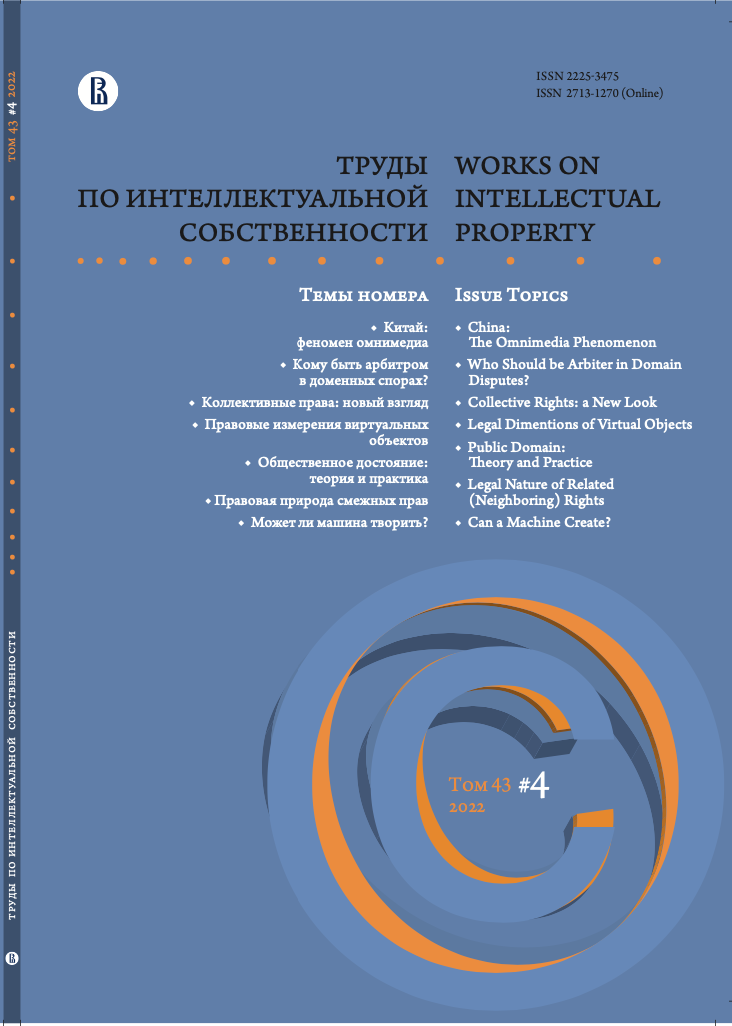DIGITAL ASSETS AND INTELLECTUAL PROPERTY
Abstract
The digital form is convenient for storing and disseminating information and the results of creativity, including in information and telecommunication networks. Objects in digital form may have a certain value and, accordingly, be the subject of various contractual legal relations. Digital objects with potential commercial value are referred to as digital assets. However, some digital objects, although having potential value, are not recognized as protected results of intellectual activity. At the same time, such objects are associated with the use of protected creative results in the digital environment.
Changing the form of presentation of the results of intellectual activity, objects of creativity, does not fundamentally change the legal approaches regarding the recognition of such objects and the procedure for their use, including for commercial purposes. At the same time, modern technologies make it possible to create digital records for digital objects in independent distributed registries, blockchain. Such records, called NFTs (non-fungible tokens), also receive potential value due to the possibility of their sale to third parties, and therefore they can also be classified as digital assets. The article discusses the possibility of classifying as digital assets the results of intellectual activity expressed in digital form, as well as other objects that are not protected results, but are associated with their use.
When writing the article, in particular, the methods of analysis and synthesis, the systematic method, the formal-logical method and others were used.
If NFTs comply with certain legal requirements, they can be attributed to new objects of civil law, namely digital rights. The article discusses some problematic aspects of the use of NFTs and their recognition as full-fledged objects of civil rights in the Russian Federation. The possibility of using NFTs to protect exclusive rights in court is noted, since they can serve as evidence of the existence of a digital object in an objective form on a certain date.


